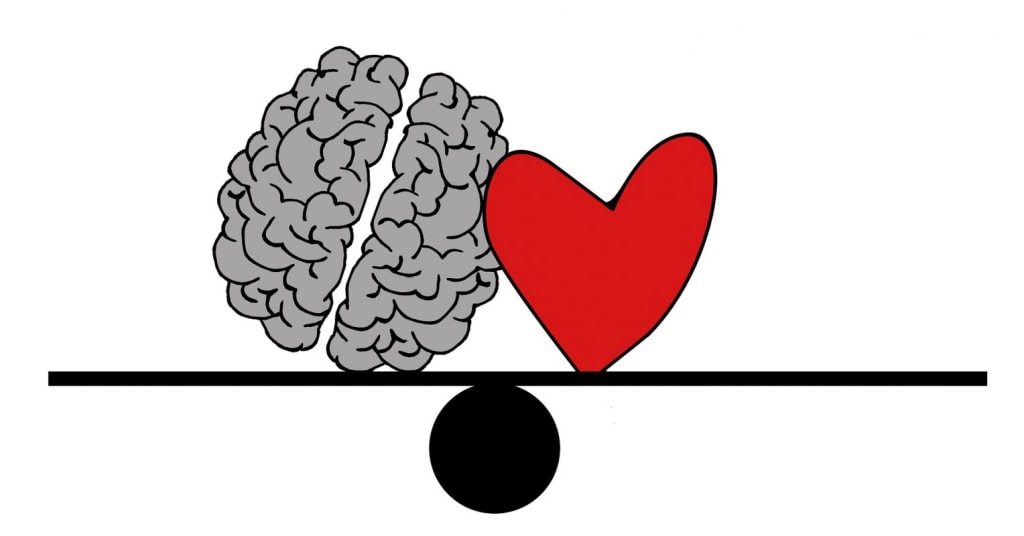How love changes your brain
"The Neuroscience of Love: From Euphoria to Heartbreak and Healing"

Love is frequently portrayed as inspiring, awful and, surprisingly, deplorable. All in all, what does the cerebrum have to do with it? Everything! The excursion from first flash to last tear is directed by an orchestra of neurochemicals and mind frameworks. As you succumb to somebody, you might end up unnecessarily wandering off in fantasy land about them and needing to get to know one another. This first phase of adoration is what clinicians call captivation, or energetic love. Your new relationship can feel practically inebriating, and with regards to the mind, that is not a long way from reality. Charmed people show expanded enactment in the ventral tegmental region. The VTA is the prize handling and inspiration center of the mind, terminating when you do things like eat a sweet treat, extinguish your thirst, or in additional outrageous cases, consume medications of misuse. Actuation delivers the "vibe great" synapse dopamine, helping your mind to rehash ways of behaving fully expecting getting a similar beginning prize. This expanded VTA action is the explanation love's euphoric, yet in addition draws you towards your new accomplice. At this first stage, seeing any shortcomings in your new wonderful partner might be hard. This dimness is thanks to cherish's impact on higher cortical cerebrum areas. A few recently beguiled people show diminished movement in the cerebrum's mental focus, the prefrontal cortex. As enactment of this area permits us to participate in decisive idea and condemn, it's not shocking we will generally see new connections with die-hard optimism. While this first phase of affection can be an extraordinary rollercoaster of feelings and mind action, it commonly just endures a couple of months, clearing a path for the more dependable phase of affection, known as connection, or humane love. As your relationship creates, you might feel more loose and focused on your accomplice thanks by and large to two chemicals: oxytocin and vasopressin. Known as pair-holding chemicals, they signal trust, sensations of social help and connection. Along these lines, heartfelt love isn't not normal for different types of adoration, as these chemicals likewise assist with holding families and fellowships. Further, oxytocin can hinder the arrival of stress chemicals, which is the reason investing energy with a friend or family member can feel so unwinding. As early love's suspension of judgment blurs, it very well may be supplanted by a more legit understanding and more profound association. On the other hand, as your rose-hued glasses start to lose their color, issues in your relationship might turn out to be more obvious. No great explanation a relationship closes, we can pin the aggravation that goes with shock on the mind. The trouble of a separation initiates the isolated cortex, a locale that cycles torment — both physical, such as hyper-extending your lower leg, as well as friendly, similar to the sensations of dismissal. As days pass, you might wind up indeed wandering off in fantasy land about or hankering contact with your lost accomplice. The drive to connect may feel overpowering, similar to an outrageous appetite or thirst. While taking a gander at photographs of a previous accomplice, grief-stricken people again show expanded movement in the VTA, the inspiration and prize focus that drove sensations of yearning during the underlying phases of the relationship. This profound hurricane additionally logical enacts your body's caution framework, the pressure pivot, leaving you feeling shaken and fretful. Over the long haul, higher cortical areas which supervise thinking and drive control, can slow down this pain and hankering flagging. Considering that these districts are as yet developing and making associations through pre-adulthood, it's no big surprise that first grievousness can feel especially anguishing. Exercises like activity, investing energy with companions, or in any event, standing by listening to your main tune can tame this tragedy stress reaction, while additionally setting off the arrival of feel-great synapse dopamine. What's more, given time and the help, most can mend and gain from even the most pulverizing disaster.





Comments
There are no comments for this story
Be the first to respond and start the conversation.